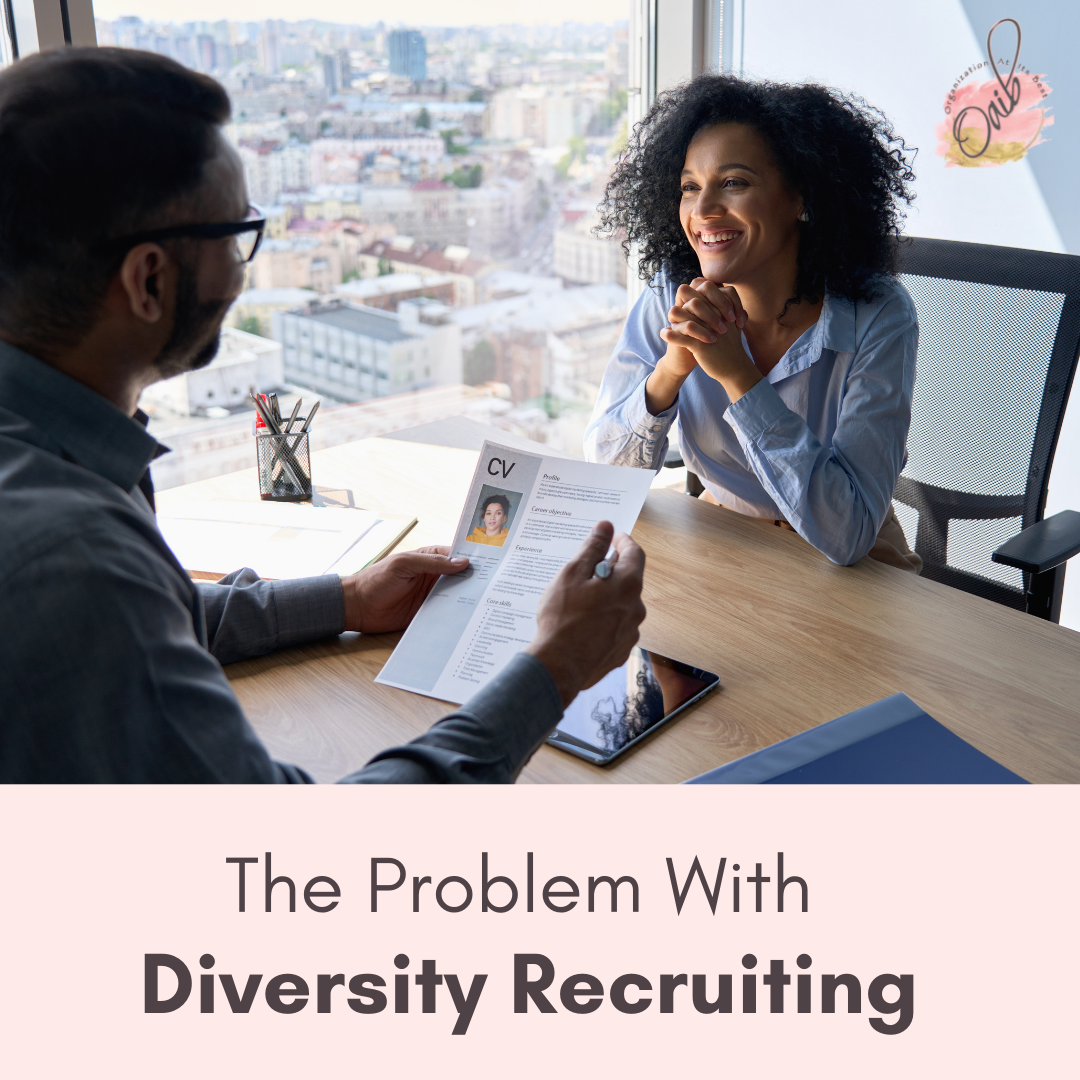
MAY 3, 2022
The Problem with Diversity Recruiting
“We want to diversify our leadership team, but…”
I hear some version of this all the time.
Clients, associates, and even business partners tell me they want to hire a more diverse staff, but there aren’t enough POC candidates.
That’s simply not true.
The issue may be that your process is excluding some great candidates.
Inequitable Hiring Processes Prevent Diversity Recruiting
Here’s an example. Let’s look at how a Person of Color (POC) would react to a job description. Words mean different things to different people.
If a successful African American female executive sees the word “oversees” in a job description – a word that for her has associations with slavery – she may conclude that the organization is not a fit for her and not apply.
Another example is that HR departments and recruiters post their job descriptions only on mainstream job sites instead of proactively looking where ideal POC candidates are spending their time.
In almost every city or region there are organizations for Black, Latino, Asian, and other professionals. You can also find connections through educational alumni groups such as local Historically Black Colleges & Universities (HBCUs), cultural organizations such as the African American Chamber of Commerce, or local networking and association groups. Here in Baltimore, we have the Economic Leadership League, the Reginald F. Lewis Museum, and the Associated Black Charities, to name just a few.
Another issue we see, and coach our clients on, is that hiring managers unconsciously exclude resumes based on people’s names. People’s natural tendency is to look for people like themselves, “similar to me bias” to the exclusion of others who may be equally, or more, qualified. The result is that “Shanice,” who has a Black-sounding name, is a graduate of an HBCU, and did not have a paid internship, goes to the bottom of the resume pile.
Training is the Solution
We can address all of these issues by training HR teams, recruiters, and hiring managers, not in “diversity recruiting,” but in straight-up equitable hiring practices where the people involved in the process are trained in detecting and eliminating biases.
One of the most important, and easiest things you can do, is to have both people trained in the kinds of practices mentioned above, as well as People of Color, on the hiring committee.
We coach our clients to:
- Require training in equitable hiring practices for all people involved in the hiring process
- Have them take a knowledge check at the end of their training
- Go through a renewal process every one to two years
The renewal process is especially important to ensure new bias hasn’t crept into the process or their thinking.
We’re happy to discuss any of this with you, just contact us.
Organization At Its Best Founder and Chief Executive Officer, Tawana Bhagwat, has more than twenty-five years of experience directing Human Resource administration, change management, learning and development, facilitation, DEIB, and executive coaching.

